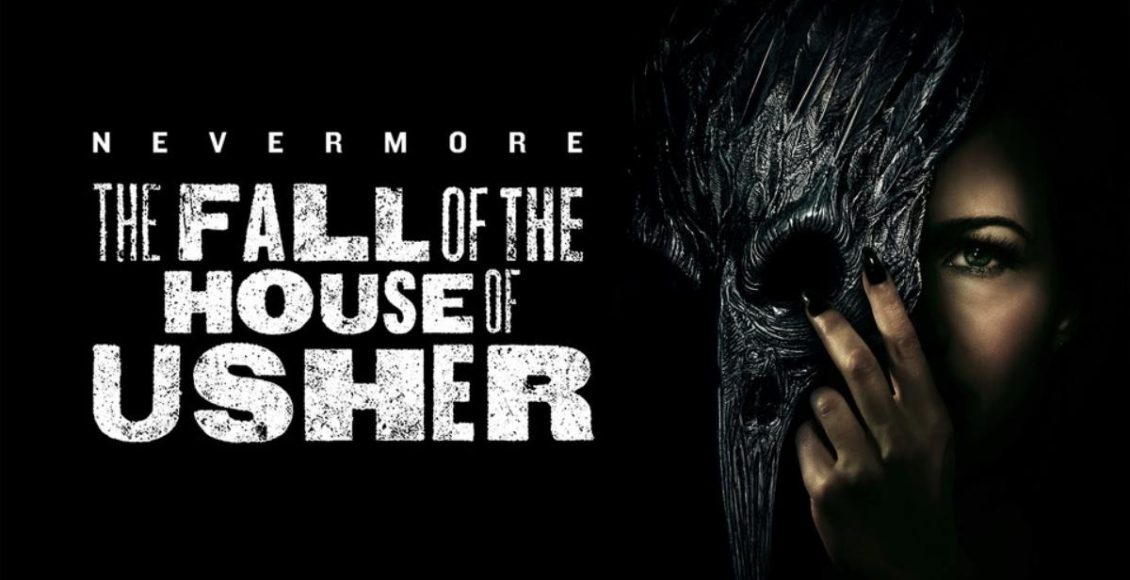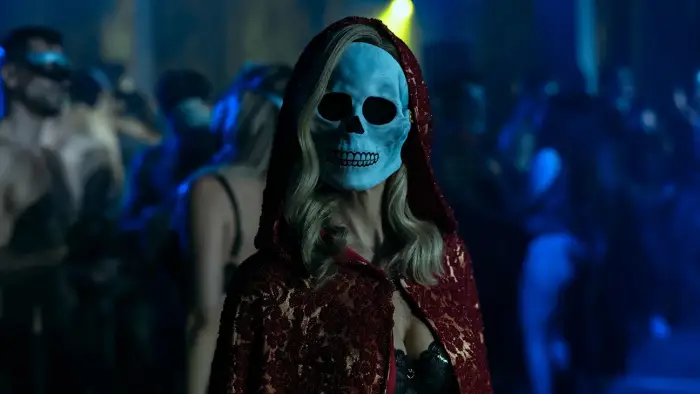[The Fall of the House of Usher Review] The series that meets Mike Flanagan’s standards is just a scene of horror.
The Fall of the House of Usher
Summary
In summary, this series by Mike Flanagan successfully combines elements of horror and the supernatural in each episode, featuring his signature use of talented ensemble casts. However, it falls short in delivering a compelling narrative due to overly detailed and stretched-out dialogue that doesn’t encourage viewers to engage in thought-provoking discussions about religion, philosophy, or science as seen in his previous works. The final reveal of the mysterious characters is disappointingly conventional. If you’re not a die-hard fan of the director, this series is still worth watching, as it excels in most aspects, but be prepared to endure lengthy dialogues.
Overall
7/10User Review
( votes)Pros
- This series by Mike Flanagan excels at delivering effective horror scenes that meet the standard.
- It is an adaptation of well-known Edgar Allan Poe’s works.
- It features a familiar ensemble cast from his previous projects.
Cons
- A lengthy conversation that doesn’t invite further discussion.
- The final revelation of the mysterious characters is disappointingly.
The Fall of the House of Usher The Netflix horror series, consisting of 8 episodes, concludes with two wealthy siblings, Roderick and Madeline Archer, having created a potion that bestows them with wealth, privilege, and power. However, hidden secrets behind their success are about to unravel when the family’s heir begins to die at the hands of a mysterious woman from the past.

The Fall of the House of Usher Review (No spoiler)
The horror series by Mike Flanagan , the creator of Midnight Mass and The Haunting of Hill House, is likely well-known to Netflix viewers. While some of his works may seem unusual and not receive widespread acclaim, such as The Midnight Club or the sequel to The Haunting of Bly Manor, it’s because Flanagan did not fully direct or write these series. Instead, he directed just a few episodes and focused on being a producer, emphasizing his name more than his involvement.
This series, like the others, is adapted from the famous novel by Edgar Allan Poe of the same name. Flanagan directed four episodes (1, 2, 5, 6), making it not a pure 100% product of his style, as seen in his earlier works. This clarifies that having Mike Flanagan’s name attached doesn’t guarantee a certain standard of work, as some might expect.
As a fan of Flanagan’s work since his theatrical release of Oculus , I have followed his career as he transitioned into creating long-running TV series, seemingly moving away from making movies for theaters (likely due to the disappointing box office performance of Doctor Sleep). His trademark is the intersection of belief and philosophy with science, which often leads to various debates and contradictions in all of his supernatural-themed stories. Just because it involves the supernatural doesn’t mean it’s purely supernatural, and this series attempts to do the same.
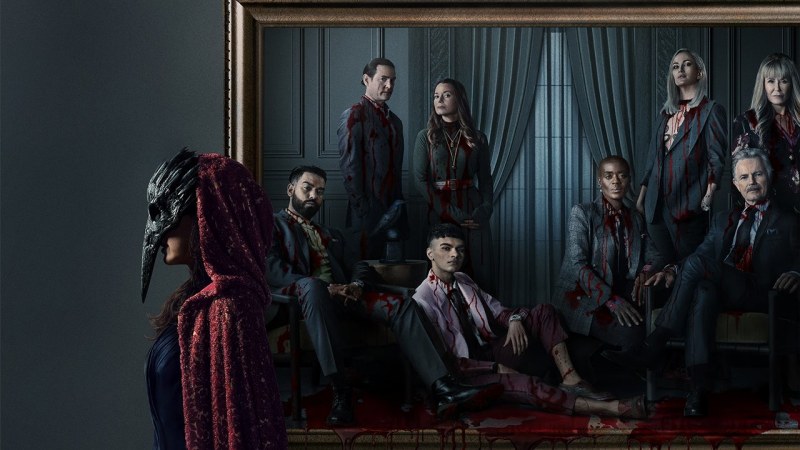
The story revolves around Roderick Usher, a wealthy pharmaceutical company owner who faces serious allegations. He receives a warning from attorney Auguste Dupin that there is a secret witness among his heirs who is ready to reveal the family’s dark deeds. Among this group of heirs, there are five people and one granddaughter, and almost all of them have died under mysterious circumstances at the outset of the story. Before inviting Auguste Dupin to retrace the events and hear the complete account of what happened
Using a storytelling approach where everyone dies first before rewinding the story from the very beginning, starting from the life of a millionaire to the most recent event, this is a near-entirely backward-looking narrative, covering about 70-80% of the entire story. Starting from episode 2, there will be one death per episode, with each episode primarily focusing on the character whose death is imminent, alternating with events involving other characters, leading up to the mysterious deaths that happen within a short span of just a few days. While it may seem like accidents and there are witnesses explaining these events, each incident involves a mysterious female character who is always connected in some way. Who she is, whether it’s a murder to claim an inheritance or related to a secret witness in an ongoing case, this is the biggest mystery of the series that unfolds across all 8 episodes for the viewers to follow.
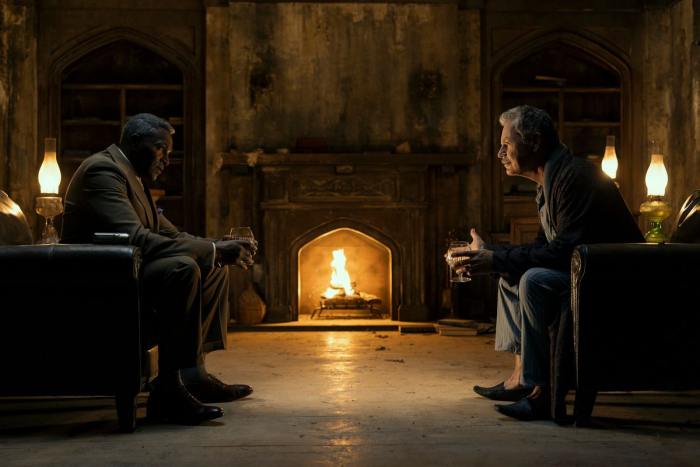 The series still maintains its slow-paced storytelling style with extensive dialogues, as per Mike Flanagan’s signature. Those who are not accustomed to his approach might find it tedious or a drawback. However, fans of his work will recognize that in these detailed dialogues lies the art of conveying a slow-burning narrative, often hiding various subtleties. This series aims to do the same, utilizing poetic dialogues at times to tell the story.
The series still maintains its slow-paced storytelling style with extensive dialogues, as per Mike Flanagan’s signature. Those who are not accustomed to his approach might find it tedious or a drawback. However, fans of his work will recognize that in these detailed dialogues lies the art of conveying a slow-burning narrative, often hiding various subtleties. This series aims to do the same, utilizing poetic dialogues at times to tell the story.
In the horror scenes depicting the deaths of each character, the series starts off strongly towards the end of episode 2 with a mass murder scene at a secret party. After that, it transitions into individual deaths, similar to the “Final Destination” movies, where it opens up opportunities for the creators to play with various elements surrounding the characters, pushing them to their limits until they meet their demise. The series excels in this aspect, though it may not be as heart-pounding as traditional horror films, it still manages to create a sense of unease and intrigue, making viewers wonder how each character will meet their end.
Additionally, there is the eerie illness affecting the millionaire, with disturbing visions of his deceased child. These unsettling scenes are intentionally crafted to jolt and terrify the audience, akin to straightforward horror films. The series also drops hints about the deaths of the characters in each episode before providing a summary in the final episode, creating a well-executed narrative connection.
The actors in this movie are still a regular team for several prominent directors. Notably, Zach Gilford plays the role of a young millionaire alongside his on-screen wife, portrayed by Katie Parker. Samantha Sloyan, Henry Thomas and Henry Thomas play characters with their own mental and behavioral issues. However, the elderly millionaire is portrayed by Bruce Greenwood, and his sister is played by Mary McDonnell. Both of them are new actors for the director. The use of this ensemble cast, mainly from the old series, helps fans feel more familiar because each of them is a talented actor chosen by this director.
However, even though all the elements are in Mike Flanagan’s signature style, this story falls short in some aspects. The first issue is the highly detailed but ultimately unengaging dialogue, as it focuses more on poetic beauty than on inviting deep contemplation. Unlike the religious or scientific dialogues that provoke thought and debate, the dialogue here, such as Zach Gilford’s lines in “Midnight Mass,” lacks the emotional resonance, making it difficult to connect with. This may be because the story is a modification of Edgar Allan Poe’s works combined with the events of a big pharmaceutical company creating opioids, claiming they are non-addictive. This causes the film to try to emphasize this aspect, merging it with supernatural elements, which falls short in episode 8 as the film fails to deliver a satisfying climax, leaving viewers feeling disappointed. Even though viewers may have followed the series closely, they can predict the outcome with certainty because the central mysterious female character in the story is a trope that has been used in many stories for a long time, making it feel overly ordinary. This is unlike his other works, which have often managed to surprise and captivate the audience more effectively. This leaves fans of his work feeling more disappointed than they should.
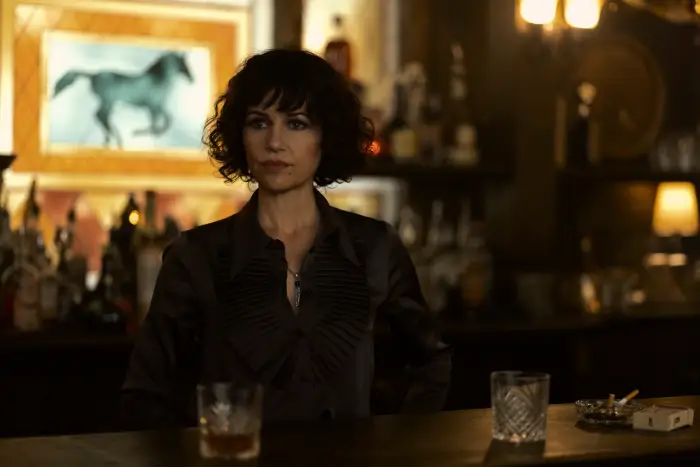 In summary, this series by Mike Flanagan successfully combines elements of horror and the supernatural in each episode, featuring his signature use of talented ensemble casts. However, it falls short in delivering a compelling narrative due to overly detailed and stretched-out dialogue that doesn’t encourage viewers to engage in thought-provoking discussions about religion, philosophy, or science as seen in his previous works. The final reveal of the mysterious characters is disappointingly conventional. If you’re not a die-hard fan of the director, this series is still worth watching, as it excels in most aspects, but be prepared to endure lengthy dialogues.
In summary, this series by Mike Flanagan successfully combines elements of horror and the supernatural in each episode, featuring his signature use of talented ensemble casts. However, it falls short in delivering a compelling narrative due to overly detailed and stretched-out dialogue that doesn’t encourage viewers to engage in thought-provoking discussions about religion, philosophy, or science as seen in his previous works. The final reveal of the mysterious characters is disappointingly conventional. If you’re not a die-hard fan of the director, this series is still worth watching, as it excels in most aspects, but be prepared to endure lengthy dialogues.

